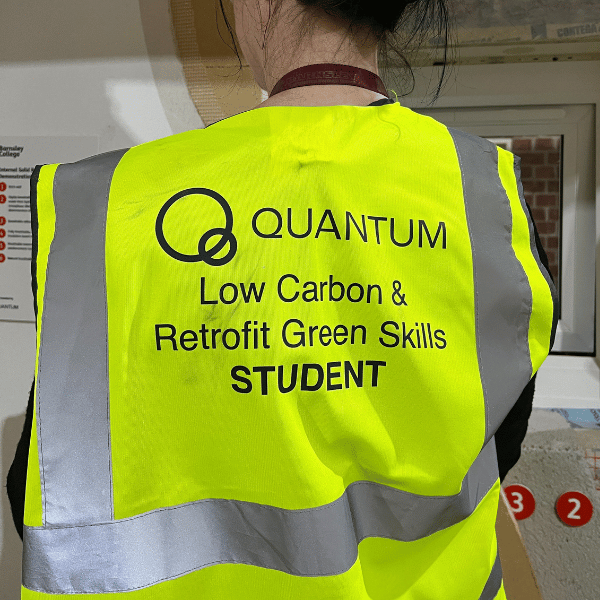How SMEs can align finance and sustainability to grow
For too long, sustainability and finance have been treated as separate worlds in business. Finance was seen as the world of hard numbers, rigid targets, and shareholder returns. Sustainability was the world of values, ethics, and long-term impact. For today’s forward-thinking SMEs, however, this division is becoming obsolete. The two are inseparable, and when they’re aligned, they create growth that’s not just profitable but deeply purposeful.
We recently brought together two pioneering accountants, James Lizars of Thrive Accountants and Georgi Rollings of Starfish Accounting, to discuss how they are embedding sustainability into the core of their financial advice. Their insights reveal a powerful shift in what it means to build a successful business.
Moving beyond ‘bolt-on’ thinking
The most common mistake businesses make is treating sustainability as an afterthought, a separate report to write or a green initiative to fund when profits are high. This approach is not only inefficient, but it also misses the entire point.
“Treating sustainability as a bolt-on is the biggest mistake,” says James. “If you consider it amongst everything you are doing, it’s so much easier to implement; and the truth is, sustainable business models work and they make money. It’s a much nicer way to live.”
When sustainability is integrated into every decision, from procurement to hiring, it becomes a strategic driver rather than a burden.
The clear financial upside
Integrating sustainable practices delivers tangible commercial benefits. Georgi Rollings has seen this first hand with her own firm and its clients. Simple changes can create a virtuous cycle of positive returns.
“We now buy reconditioned IT equipment,” Georgi explains. “It’s better for the planet and it’s cheaper, but the bonus is that clients who share our values are now reaching out to us. It’s almost like a free marketing tool.”
Hiring and retention also emerge as major gains. In a competitive talent market, businesses that demonstrate genuine commitment to their people and principles have a distinct advantage. As Georgi notes, “Millennials and Gen Z really want to work with a business that resonates with their values. Sustainability is one of the best ways to attract decent talent.”
Giving SMEs ‘permission’ to act differently
As trusted advisors, accountants and financial professionals are uniquely positioned to guide SMEs through this transition. They can help business leaders shift their perspective from short-term profit maximisation to long-term value creation, giving them the confidence to make different, better choices.
“We can show that profit maximisation is a long-term game,” James says. “A sustainable choice may not maximise margin this month, but over time, those choices help businesses outperform competitors.”
The growing risk of waiting
In a rapidly changing economic landscape, inaction is a strategic risk. SMEs that delay integrating sustainability risk being outmanoeuvred by more agile competitors.
“If one of your competitors is already on the journey, they’ll be winning the business and the employees you’ll miss,” warns Georgi. “It sits in that ‘important but not urgent’ box, and that’s where businesses get left behind.”
The market itself is shifting. Ignoring the transition to a low-carbon economy is no longer a viable option. James adds a stark warning: “If your product is fundamentally about unsustainable consumption, not innovating is likely to kill your business at some point. It’s the Kodak dilemma.”
The human side of the balance sheet
Beyond strategy and risk, this shift is also deeply personal. It’s about building a business that aligns with your own values and leaves a positive legacy.
“One of the real driving forces behind what I do is my kids,” James reflects. “If I ran the most commercially successful practice but left them a broken planet, what would they think of my legacy?”
For Georgi, the change has been transformative. “For years, my environmental values felt separate from my professional life. Now they connect, and that’s joyous. Clients see it, staff see it, and we’re building a business I’m proud of.”
Profit as an enabler, not the end goal
Profit is not the ultimate goal of a business; it’s the enabler. It provides the fuel to create jobs, innovate, and make a positive contribution to society. The real question for SME leaders is: what kind of impact will your profit have?
Or as our founder, Sarah Whale, puts it: “Sustainability isn’t a trade-off. Done well, it’s a multiplier for people, profit, and planet.”
To hear the full, inspiring conversation with James and Georgi, listen to the video episode
How Profit Impact can help
Integrating sustainable practices into every part of your business, from IT procurement to financial planning, is the key to building long-term value. At Profit Impact, we help you move beyond box-ticking to develop a holistic strategy that drives efficiency, enhances resilience, and strengthens your bottom line.
If you’re an SME leader looking to build a more robust and purposeful business, get in touch to see how we can help you turn your sustainable ambitions into a powerful commercial advantage.

"Whilst achieving B Corp certification is hard work, keeping up momentum is essential. As a business, we want to keep improving, and in Profit Impact, we've found a valued partner that can stretch us, advise us and help us grow sustainably."



.avif)



.webp)

.webp)



